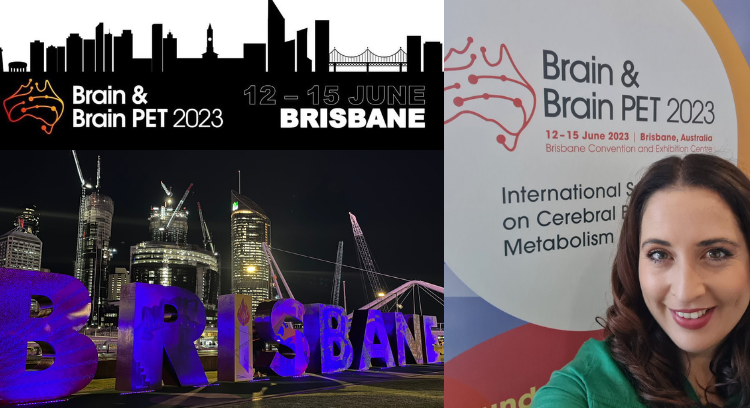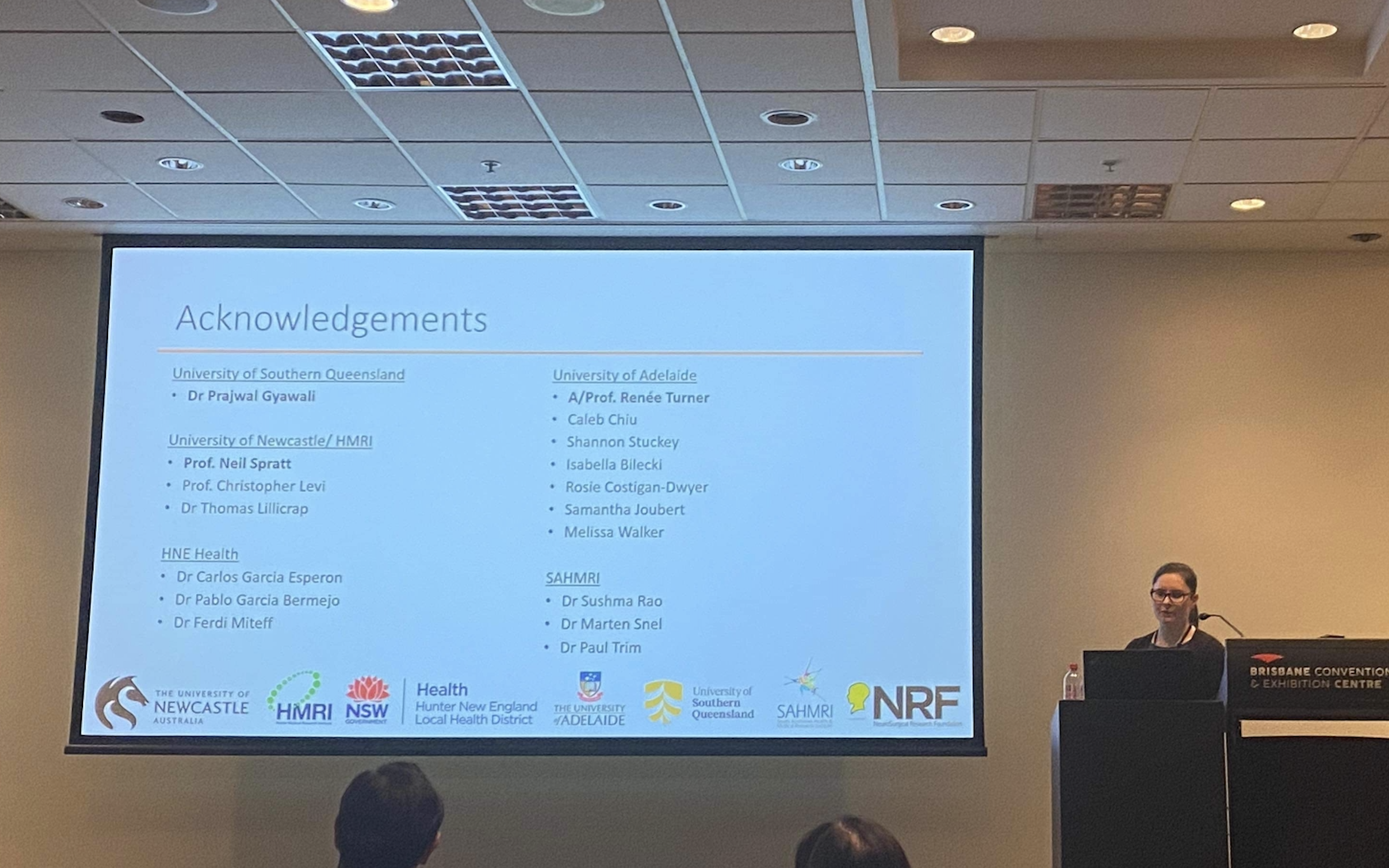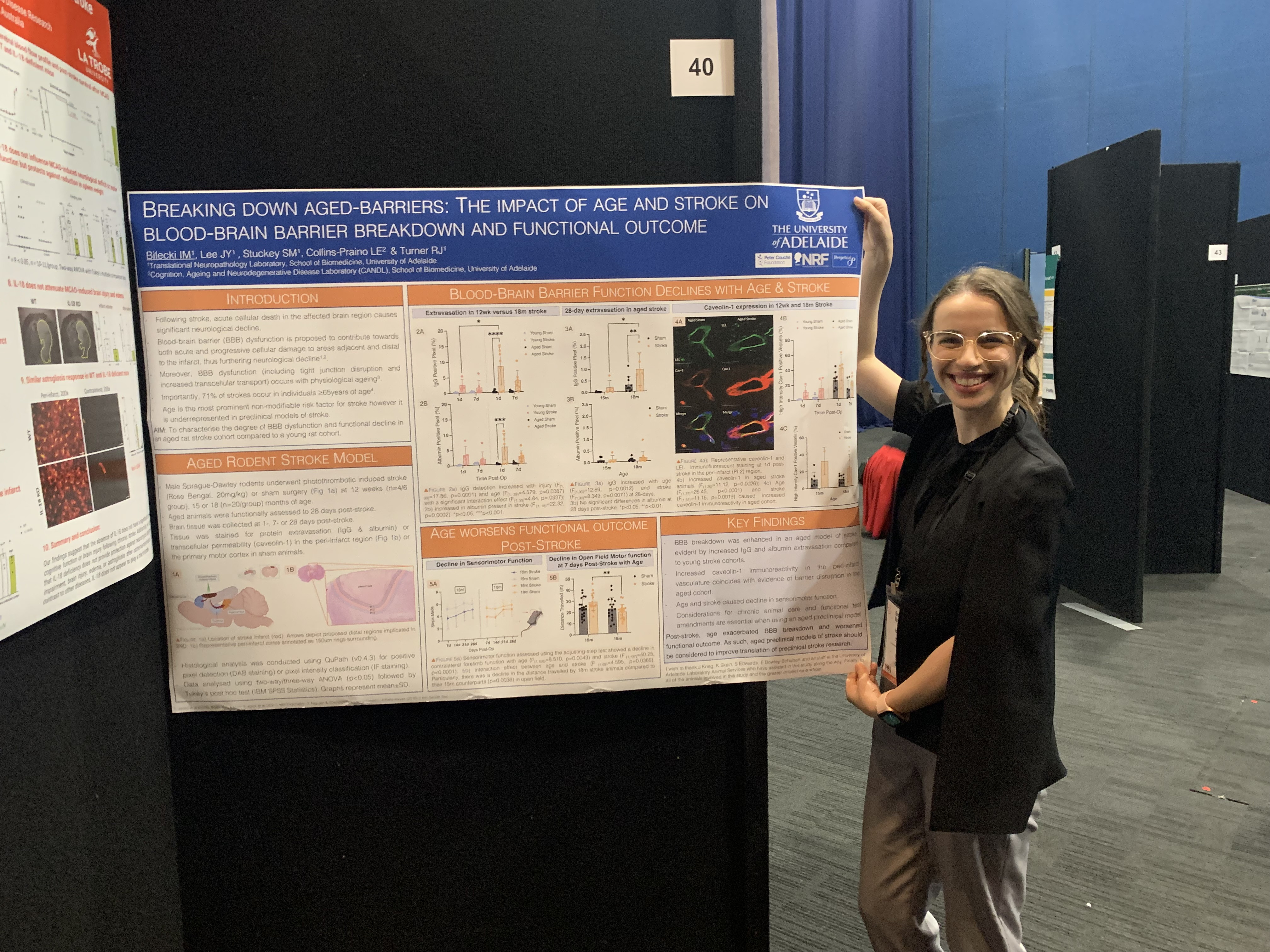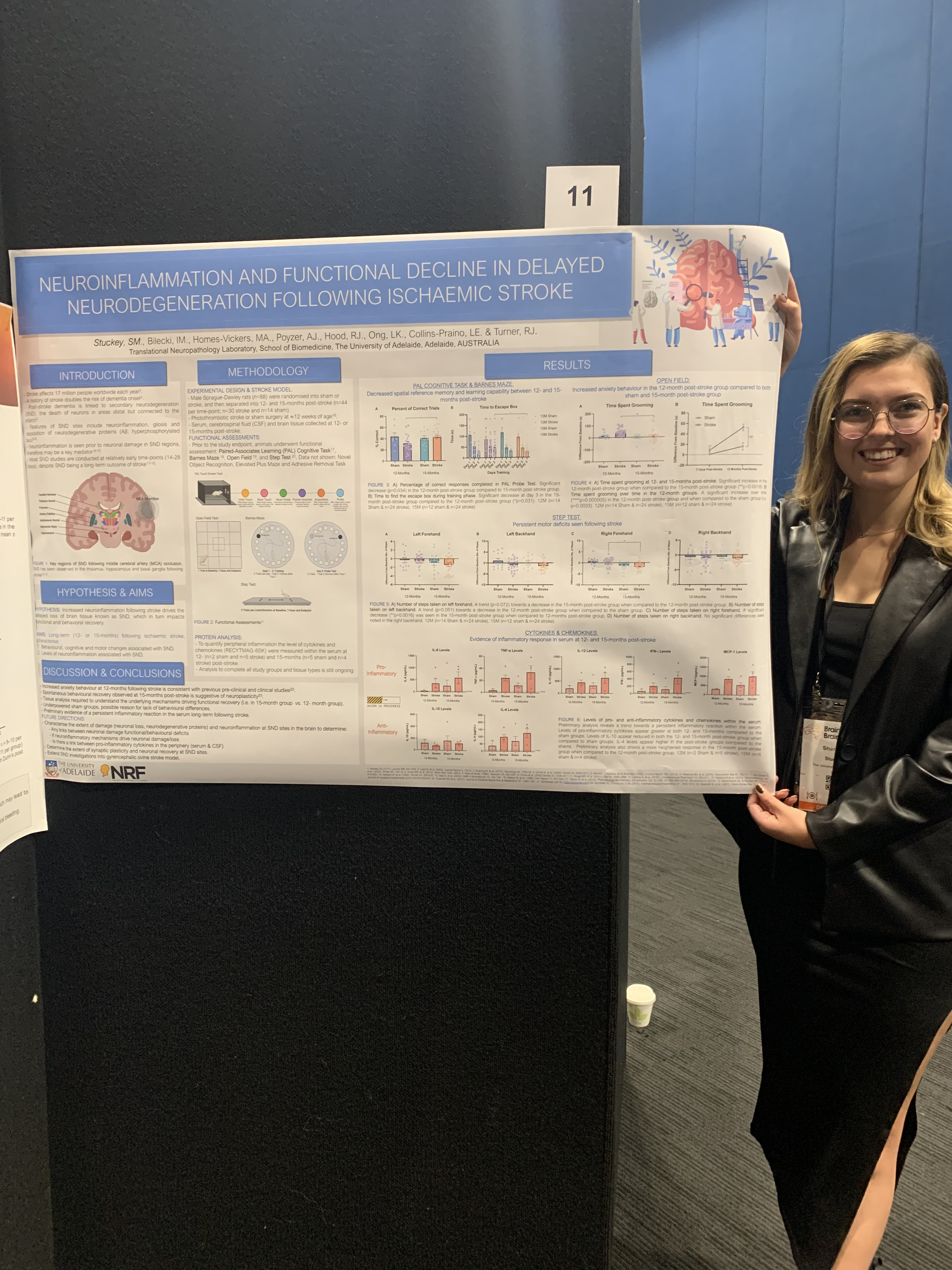NRF sponsors Brain & Brain PET 2023 Conference
Three exceptional stroke researchers awarded an NRF Early Career Bursary to present their latest findings on a global stage.

The Brain & Brain PET 2023 Conference, one of the top international conferences in neuroscience research was recently held in Australia for the first time. Well done to NRF Director of Neurosurgical Research A/Prof Renée Turner who co-chaired this very successful event, curating a fantastic program bringing together esteemed delegates from all over the world to present the latest discoveries in their fields.
The NRF awarded 3 of our exceptional early career stroke researchers with an Early Career Travel Bursary to enable them to attend the conference and present their latest research.
Congratulations to recipients Rebecca Hood, Isabella Bilecki and Shannon Stucky who did a fantastic job representing the University of Adelaide Translational Neuropathy Laboratory and presented their latest findings on a global stage.

Dr Rebecca Hood - Therapeutically Retrieved clots for an -Omic and Biochemical Understanding after ischaemic Stroke (THROMBUS) Study
Most strokes are caused when a blood vessel in the brain becomes blocked by a blood clot. This clot can form within the brain or outside the brain (e.g the heart) and travel via the circulation to the brain where it lodges and causes a stroke. The origin of the blood clot is important when determining the best treatment strategy to prevent a secondary/recurrent stroke, however this is difficult to determine. This study uses state of the art biochemical analyses to determine whether the composition of the clot can help determine whether it formed in the brain or the heart.

Ms Isabella Bilecki - Breaking down aged barriers: the impact of age and stroke on blood-brain barrier breakdown and functional outcome
Brain blood vessel integrity decreases with age and also following a stroke. This dysfunction may contribute towards the cognitive decline seen both short and long-term after stroke, particularly in the aged brain.

Ms Shannon Stuckey - Neuroinflammation and functional decline in delayed neurodegeneration following ischaemic stroke.
Increased neuroinflammation following stroke drives the delayed loss of brain tissue known as secondary neurodegeneration (SND), which in turn impacts functional and behavioural recovery. This study looked at the long-term impact of secondary neurodegeneration following ischaemic stroke, characterising the levels of neuroinflammation associated with SND and the associated behavioural, cognitive and motor changes.
Stroke is the leading cause of disability and the second leading cause of death worldwide. It is now estimated that 1 in 4 people will experience a stroke in their lifetime. Thank you to all our donors who enable us to fund groundbreaking stroke research to develop better treatments and improve outcomes for patients.
You can read about and support the latest NRF funded stroke research here




